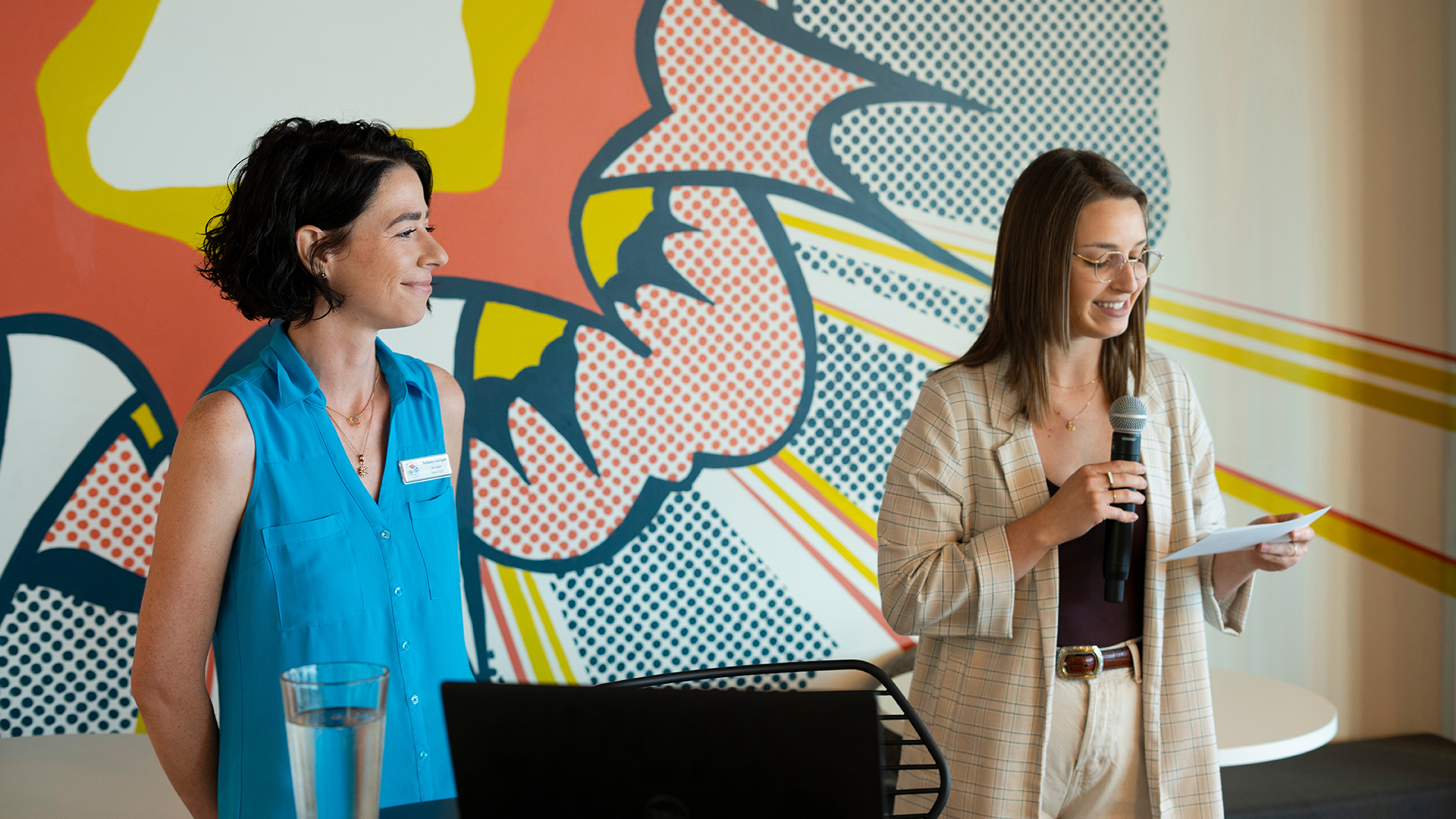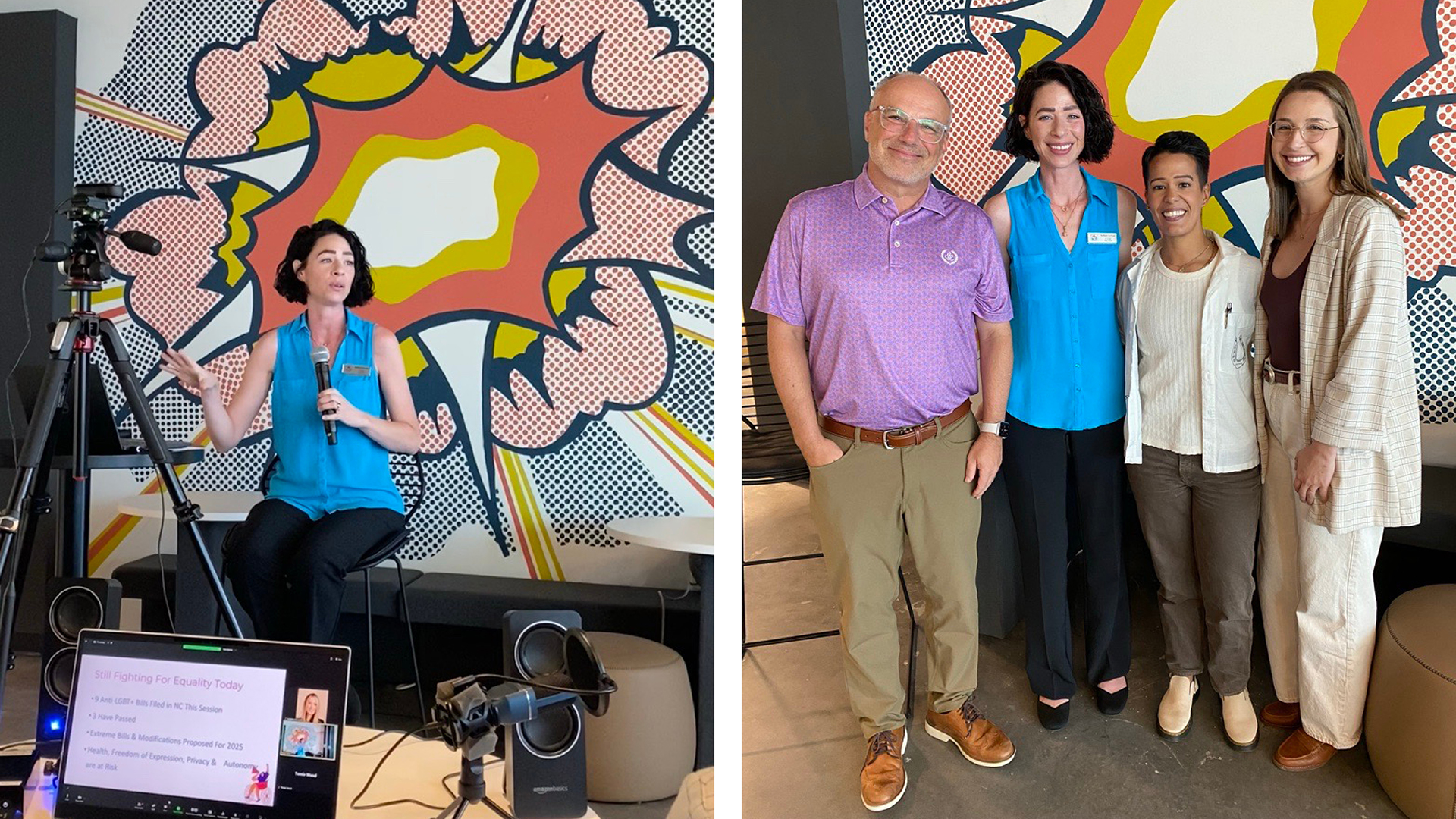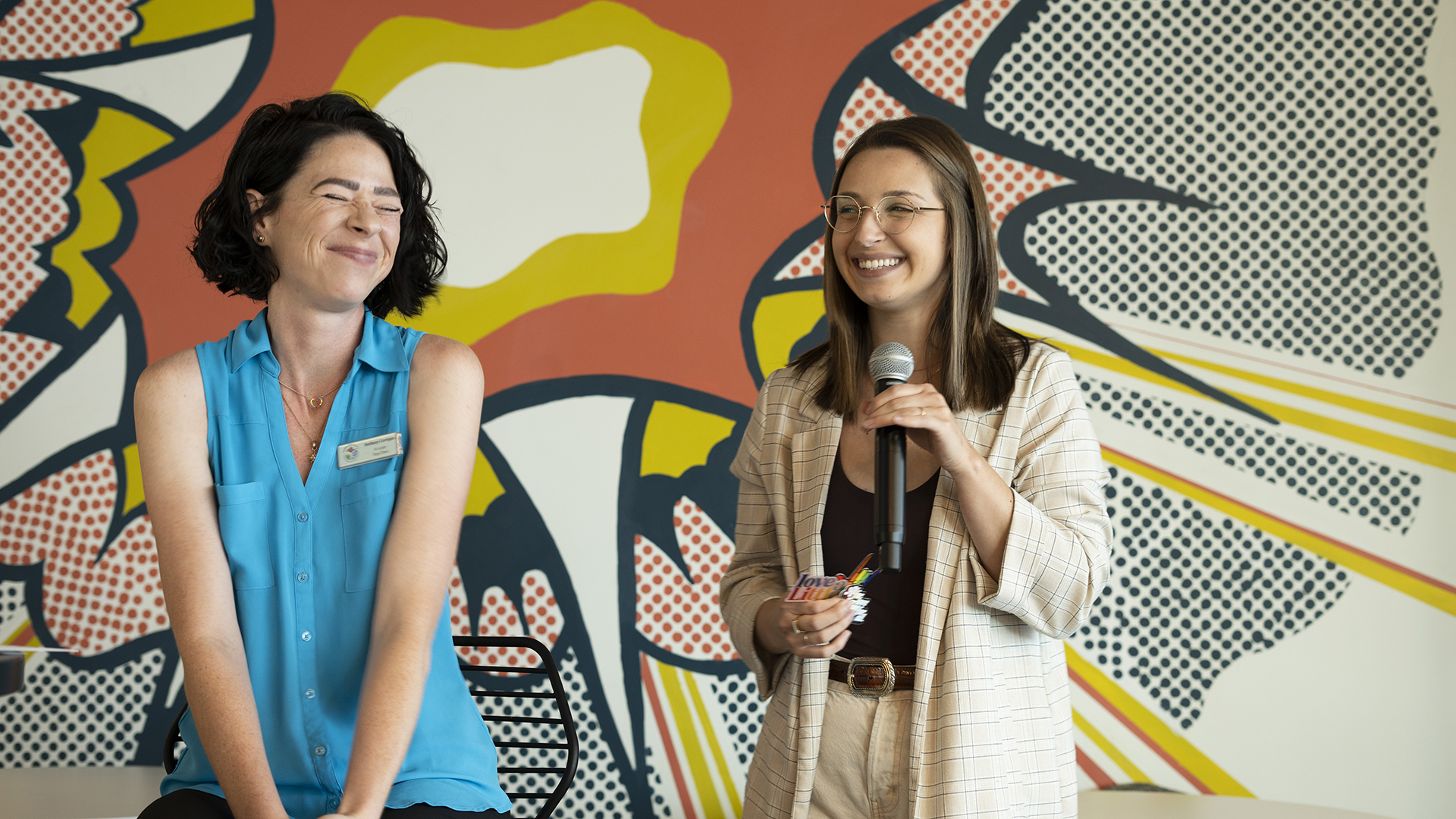In celebration of Pride Month, Little hosted a firmwide event on June 13 for a discussion and Q+A session centering on creating safe spaces and supporting our LGBTQ+ community. Presented by Little’s employee resource group, The Exchange, the event was led by Bethany Corrigan from the Carolinas LGBT+ Chamber of Commerce, who delivered a thought-provoking discussion on the significance of Pride Month, the dangers of assumptions, and the vital role of inclusive design. As an influential advocate for diversity and inclusion, Corrigan’s insights provide a roadmap for fostering a more accepting and supportive society.
WHAT IS PRIDE AND WHY IS IT IMPORTANT?
Corrigan began by exploring Pride and the significance of June being designated as Pride Month, emphasizing its roots in the LGBTQ+ rights movement and relation to the broader civil rights movement. “Pride is first and foremost, a revolution,” they noted. The month serves as recognition of the journey, struggles, and triumphs of the LGBTQ+ community. For Corrigan, Pride is a powerful assertion of identity and self-worth, a time to honor the progress made while acknowledging the work still needed. They recounted the historical significance of the Stonewall Riots and the ongoing fight for equality, highlighting how Pride events serve as both a remembrance and a sign of hope for the future.
Corrigan shared examples of significant legislative wins that have paved the way for equal rights – for the LGBTQ+ community and others – and the importance of protecting those rights. “One thing that I want to point out is that we are all in this together,” Corrigan declared. “The minute they start to pick apart the rights of one of us, they’re coming for all of us.” They explained that the fight for equality continues today, and Pride events and parades are more than colorful festivities; they are acts of resistance against discrimination and invisibility. By coming together to celebrate Pride, the LGBTQ+ community and its allies reaffirm their commitment to a world where everyone can live authentically and without fear.

HOW ASSUMPTIONS GET IN THE WAY
One theme of Corrigan’s talk was the pervasive issue of assumptions. “Assumption is stolen autonomy,” they asserted. “When we make assumptions about ourselves, others, or other communities, we are getting in our own way in terms of productivity, efficiency, and inclusion.” Corrigan illustrated how preconceived notions and stereotypes can create barriers to genuine connection and empathy. They shared personal anecdotes and examples of how assumptions had led to misunderstandings and exclusion, both in everyday interactions and systemic practices.
Assumptions can often creep into our minds and shape our perceptions without us even realizing it. It’s important to challenge our own biases and to approach each interaction with curiosity and openness. Listening to people’s stories without filtering them through our own assumptions is essential. By doing so, we can begin to see each person as a unique individual rather than a collection of stereotypes.
HOW TO BE AN ALLY
Corrigan’s advice on allyship was particularly poignant. They stressed that being an ally involves more than passive support; it requires active engagement and advocacy. “An ally stands up against injustice, even when it’s uncomfortable,” they explained. Corrigan encouraged allies to educate themselves, speak out against discrimination, and amplify marginalized voices.
Corrigan emphasized that true allyship is about action. This means intervening when witnessing acts of discrimination, supporting policies that promote equality, and continually educating oneself about the issues facing marginalized communities. Corrigan also highlighted the importance of humility in allyship. “We won’t always get it right,” they acknowledged. “But we must be willing to learn from our mistakes and do better.”
Corrigan provided practical tips for being a better ally, such as attending diversity training, supporting LGBTQ+ organizations, and using inclusive language. They also encouraged allies to engage in self-reflection and examine their own privileges. “If you’ve never had to prove yourself to other people, that’s privilege,” they said. Recognize the advantages you have and use them to lift others up.

HOW TO SUPPORT INCLUSIVE DESIGN
The discussion concluded with a focus on inclusive design and creating spaces that welcome everyone. Corrigan underscored the importance of considering diverse needs and perspectives in the design process – from marketing materials and communications to physical spaces. This includes everything from accessibility features to culturally sensitive aesthetics.
Inclusive design acknowledges the value of every individual. Corrigan shared examples of design elements that support inclusivity, such as buildings with ramps and tactile signage for the visually impaired, gender-neutral restrooms, and public spaces that reflect the cultural diversity of the community. They called on architects, designers, and planners to prioritize inclusivity in their work, ensuring that environments are not only functional but also affirming for all users.
Inclusive design should be integral from the start and not an afterthought. Corrigan challenged the audience to engage with the communities they serve, seek out feedback, and be willing to adapt their designs to meet the needs of all users, emphasizing that the creation of inclusive spaces not only meets the needs of diverse individuals but also enriches society as a whole.
In summary, Bethany Corrigan’s talk was a powerful reminder of the importance of Pride, the pitfalls of assumptions, the responsibilities of allyship, and the transformative potential of inclusive design. Their message is clear: by embracing diversity and actively working towards inclusion, we can create a more just and equitable world. Corrigan’s insights challenge us to rethink our assumptions, to stand up for others, and to design with empathy and inclusivity at the forefront.
ABOUT THE EXCHANGE
The Exchange is an employee resource group at Little that exists as a platform to bring awareness through tangible stewardship for diversity and inclusion, community engagement, and professional development. Group members represent the cross section of perspectives throughout Little. The focus is to create a space within our firm that welcomes everyone. Current committee leaders include: Skylar DeMatteis, Jacob Ellerbrock, Alexandra Hernandez, Nicole Pacheco, and Tomie Wood.
Little is always exploring ideas for future events to enhance our firm’s culture. If you or your organization specializes in DEI, community engagement, or professional development, reach out to Daniel Mai to learn more about participating.

